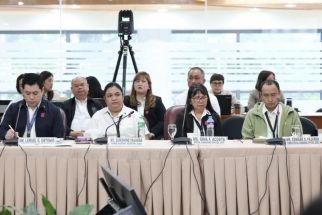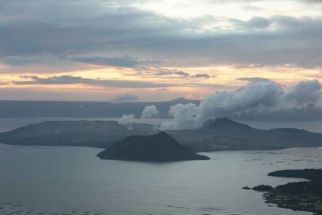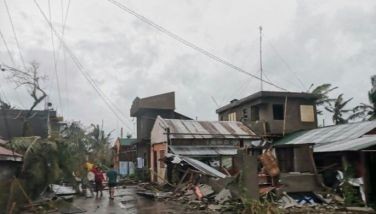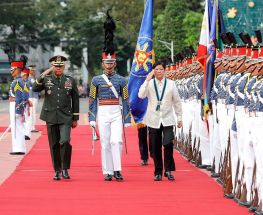Marcos asks private sector to address green energy demand
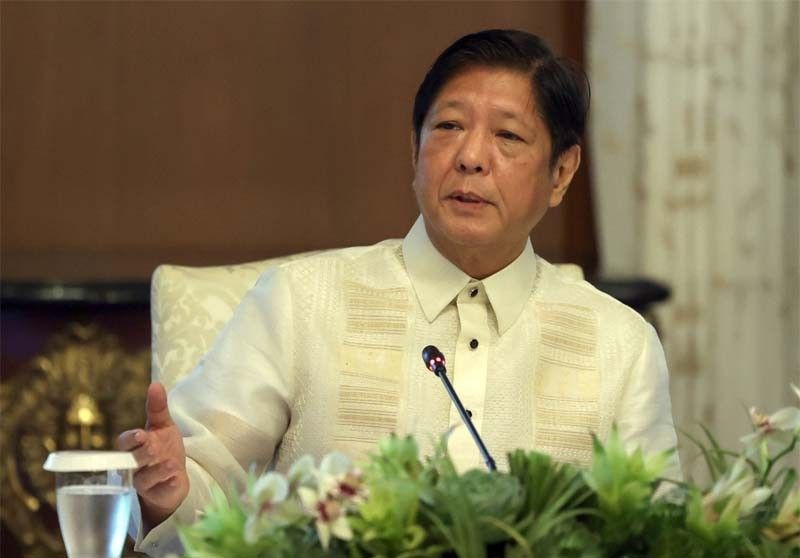
MANILA, Philippines — Top businessmen in the country have committed to come up with measures to address the demand for green energy amid the growing use of electric vehicles (EV) in the Philippines.
During a meeting with the Private Sector Advisory Council Job Sector Groups (PSAC-JSG) at Malacañang on Thursday, the President said the Philippines is becoming a major player in the industry, citing its potential in e-vehicle production.
Marcos, however, noted that consumers’ demand to source power from green energy could pose a challenge in the pursuit of an EV industry in the country.
To address the challenges, the Chief Executive underscored the need for the private sector and the government to be conscientious in considering the issue.
The PSAC-JSG made a commitment to study the proposal further and to continue working with their consultants to provide the President with a better plan, the Presidential Communications Office (PCO) said in a statement.
Among the council’s new recommendations are supporting the government’s thrust in EV manufacturing with a proposal to look into 17 downstream and upstream industry development opportunities, including mining in the EV value chain.
According to the PCO, global EV sales are expected to overtake non-EV sales globally by 2026. As EV adoption rises, many vehicle parts will remain but some of the costliest components will be replaced.
Seven of 18 common automotive components of a vehicle are being produced in the Philippines, with one of four internal combustion engine specific components locally made.
In the case of the Philippines, there are huge opportunities in the expansion of copper mining and refining, copper-heavy component manufacturing, expansion in electrical component manufacturing, software development as well as delivery centers, the PCO said.
The Philippines ranks fourth in copper reserves globally, with three plants set to increase production ten-fold by 2027, it said.
It could also benefit from the opportunity by pivoting to larger-scale mining and also has the potential to vertically integrate downstream in wires and rods further for EV components.
The country has a regional advantage in terms of raw materials, battery and parts manufacturing because of its easier access to natural resources such as copper, nickel, and with its opportunity for domestic processing and production, the PCO said.
Earlier, Department of Energy Energy Utilization Management Bureau director Patrick Aquino said he expects 100,000 e-vehicle registrations by 2028 in the country.
In January, Marcos issued Executive Order 12 temporarily reducing to zero the tariff rates on e-vehicles and its components from the previous range of five to seven percent.
Among those who attended PSAC-JSG meeting were Executive Secretary Lucas Bersamin, Labor Secretary Bienvenido Laguesma, Finance Secretary Benjamin Diokno, Trade Secretary Alfredo Pascual, Socio-economic Planning Secretary Arsenio Balisacan, Chief Presidential Legal Counsel Juan Ponce Enrile; Special Assistant to the President Secretary Anton Lagdameo, Presidential Adviser on investment and economic affairs Frederick Go, Commission on Higher Education Chairman Prospero De Vera III, Agriculture Senior Undersecretary Domingo Panganiban and Maritime Industry Authority administrator Hernani Fabia.
Representing the private sector at the meeting were Sabin Aboitiz of Aboitiz Equity Ventures Inc., Joey Concepcion III of RFM Corp., Alfredo Ayala of AC Education Inc., Rizalina Mantaring of Ayala Corp., Kevin Tan of Alliance Global Inc., Doris Magsaysay-Ho of the Magsaysay Group of Companies and Teresita Sy-Coson of SM Investments Corp.
- Latest
- Trending

















